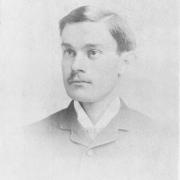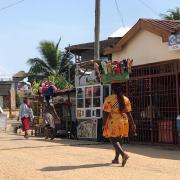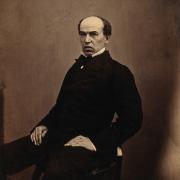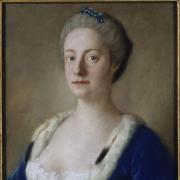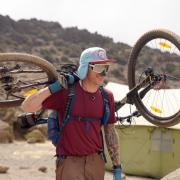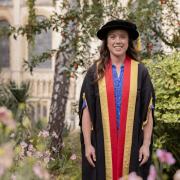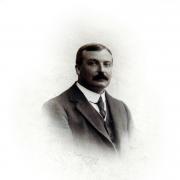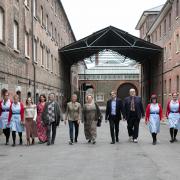The former Naval Commander of the British Forces Gibraltar has served in the Falklands, nearly became a priest and is falling in love with Kent. Meet Adrian Bell, Kent Air Ambulance Trust's very dashing new man at the top
Meet Adrian Bell, Kent Air Ambulance Trust’s chief executive
The former Naval Commander of the British Forces Gibraltar has served in the Falklands, nearly became a priest and is falling in love with Kent. Meet Adrian Bell, Kent Air Ambulance Trust’s very dashing new man at the top
The chance to head up Kent Air Ambulance Trust as its new chief executive came at just the right stage of his career for Adrian Bell, but he was convinced he hadn’t got the right experience for the job.
After his final interview he flew straight back home to Gibraltar, where he was Naval Commander of the British Forces. “My family asked how it had gone and I said I really enjoyed it and actually I’m going to be disappointed if I don’t get it, because
I don’t think I’m going to get it.”
But half an hour after he’d uttered those words the phone rang and the charity’s chairman, Tony Monteuuis, had offered him the job.
“You could have knocked me down with a feather! I don’t have fundraising experience nor deep aviation and medical experience – but it’s all about leadership when it comes down to it.”
And leadership qualities Adrian has in spades. Born in Portsmouth and with a father in the Navy, he joined Dartmouth’s Royal Naval College nearly 30 years ago at the age of 18.
He went off to Exeter University
to read politics, supported financially
by the Navy, but dropped out after just five months. “I was 19, and of course I knew what was right, so I
left. I was in quite a bit of trouble for quite a long time after that!”
But the decision did mean that the young Adrian grew up pretty quickly; on returning to the Navy he found himself almost immediately in the thick of the Falklands war.
“For a young midshipman, just 20, it was absolutely brilliant because it taught me so much so quickly and it’s lived with me for ever. It’s where I get my penchant for planning and I learnt more about leadership in six months than I could in six years anywhere else.”
Adrian returned to Dartmouth but was then seriously considering joining the church as a priest. And if that wasn’t life changing enough, he had also met a certain young lady at the wedding of a mutual friend and within a whirlwind week the couple were engaged.
Hayley of course didn’t think she was marrying a naval officer, but after six months ashore looking after trainees while he pondered his choices, Adrian realised a vocation was not for him.
“I found myself back at sea pretty quickly after that! Before our daughter Lucy was born I’d done my third tour of the Falklands in six years. Hayley and I did not enjoy the separation.”
It was to become a way of life, however, for the next 16 years – even when Adrian tried to hand his notice in he was instead offered a command at the tender age of 28 and served in Northern Ireland during the Troubles.
He tells me how the experience of being in command, where you live in total isolation, introduced him to the habit of reading poetry and short stories at mealtimes. He remains an avid reader, also has a love of music and theatre and is a keen jogger, hoping to complete a half marathon before his 50th birthday in 2012.
When the chance arose two years ago to take on the role of Commander of the British Forces in Gibraltar, it also meant the couple could finally live together and their children Lucy and Tom, both then at boarding school, could join them for the holidays.
“Our family life was so much better, and it also gave me the time to think about what I really wanted to do next.”
That period of reflection led Adrian to decide he would like the chance of a second career, rather than retiring from the Navy at the usual age of 55. Which brings us to a stormy day in Marden watching rather anxiously from the hangar as one of the Air Ambulances attempts to take off.
So what’s the verdict so far? “Coming here is all that I dreamt of and more,” he smiles. “The people are lovely to work with and I have no doubt at all that I made the right decision.”
Adrian joined the charity in September, so has had a few months to get his feet under the table and the family settled. They’re currently in a rented house in Lamberhurst to give themselves a chance to get to know their new county before they buy.
“We’re going to be very happy here because we’ve loved everything we’ve seen so far, but we’re still debating whether to live in town or country,” Adrian says, adding that he finds Tunbridge Wells “really smart” and is already appreciating Kent’s fine beer.
He’s also enjoying the new horizons his job presents. “I went to a trauma regional network conference recently in Brighton, something I knew nothing about. It’s all about how the NHS deals with severe major trauma and how they cope, who has responsibility. We slot in right at the beginning of the process. We like to think when we deliver patients into the system the outcome is what is right for the patient.”
Adrian admits that along with many people he found it difficult at first to grasp that KAAT is a charity and receives no outside funding. He is also aware there are differing opinions held about the value of Air Ambulances.
“Helipads are expensive and if you put �4m in to build one, you haven’t put it into oncology or radiology. But in all the debate about what we are, there is a superficial bit that says we can go quite fast, we don’t have to worry about traffic lights and traffic jams and we can get into places where it’s difficult for wheeled vehicles.
“We are a niche capability and provide something no one else does, because of when we intervene – very early on – and the ability then to take the patient to the right place, at the speed we do. It’s every second counts, because that’s not just survival, it’s quality of survival, and every penny counts, because it comes from the public and their generosity.”
Adrian is aware that supporters worry their donation just disappears and agrees: “The moment you press ‘start’ on a helicopter, you’re burning money. They’re expensive beasts.”
But he has a devastatingly simple illustration of where the pennies do go. “In the hangar as you go in the door there’s a big roll of bubble wrap. Every time the helicopter takes off, there’s a sheet of that bubble wrap in there, because it insulates the patient.
“And if you’ve got a patient who has a lot of bleeding, you’ve got to keep them warm – even in the summer – because a warm patient will clot, a cold patient bleeds. It’s a lifesaving piece of equipment. It’s �1 a sheet.
“Every penny counts, because that is the difference possibly between life and death. Helicopters cost millions and without them nothing happens, but it’s the combination of everything in it that matters. It’s the pilot, it’s the doctor, the paramedic, and it’s the little things too like the bubble wrap.”
To break even, KAAT needs around �4m every year and Adrian is aware there’s a need to increase income – not easy in a recession with the potential for a five per cent drop in donations purely from public sector layoffs.
One option is to consider buying rather than leasing the two helicopters at Marden and Dunsfold. And the night flying debate will continue.
“We would like to be able to do roughly by night what we do by day. But what we have to first remember is that we need to keep on doing what we do by day, and we can’t impact on that – and that’s a challenge.”
Adrian also wants to look at wills and bequests, which underpin a lot of their income. “Our line is simple: you’ve got your family, you’ve got your friends, then if you think there might be a little bit left over, do please think of us.”
The Trust runs a lottery, which more than 30,000 people support. “Every week I sign out the cheques to the winners and that’s a real pleasure.
“A lot of people also do events for us, or just donate and I want to make sure that we say thank you properly – we’re very good at asking.”
• Kent Air Ambulance was the third Air Ambulance service to be established in the UK
• Is in its 21st year of flying in Kent
• Flies with a specialist doctor and a paramedic crew on board
• Attends an average of two to three calls every day
• Operates during daylight hours, 365 days a year
• Can reach any part of Kent from its base in Marden within about 15 minutes
• Treats patients at the scene and can transport to the nearest hospital within eight minutes or a specialist hospital within 20 minutes
• Each missions costs between �1,500 and �2,000
• Is funded almost entirely by public donations
• Costs �1.7 million a year to fund
• Attended more than 700 medical emergencies in 2010
• Operates a lottery that contributes to the funding of the Air Ambulance





